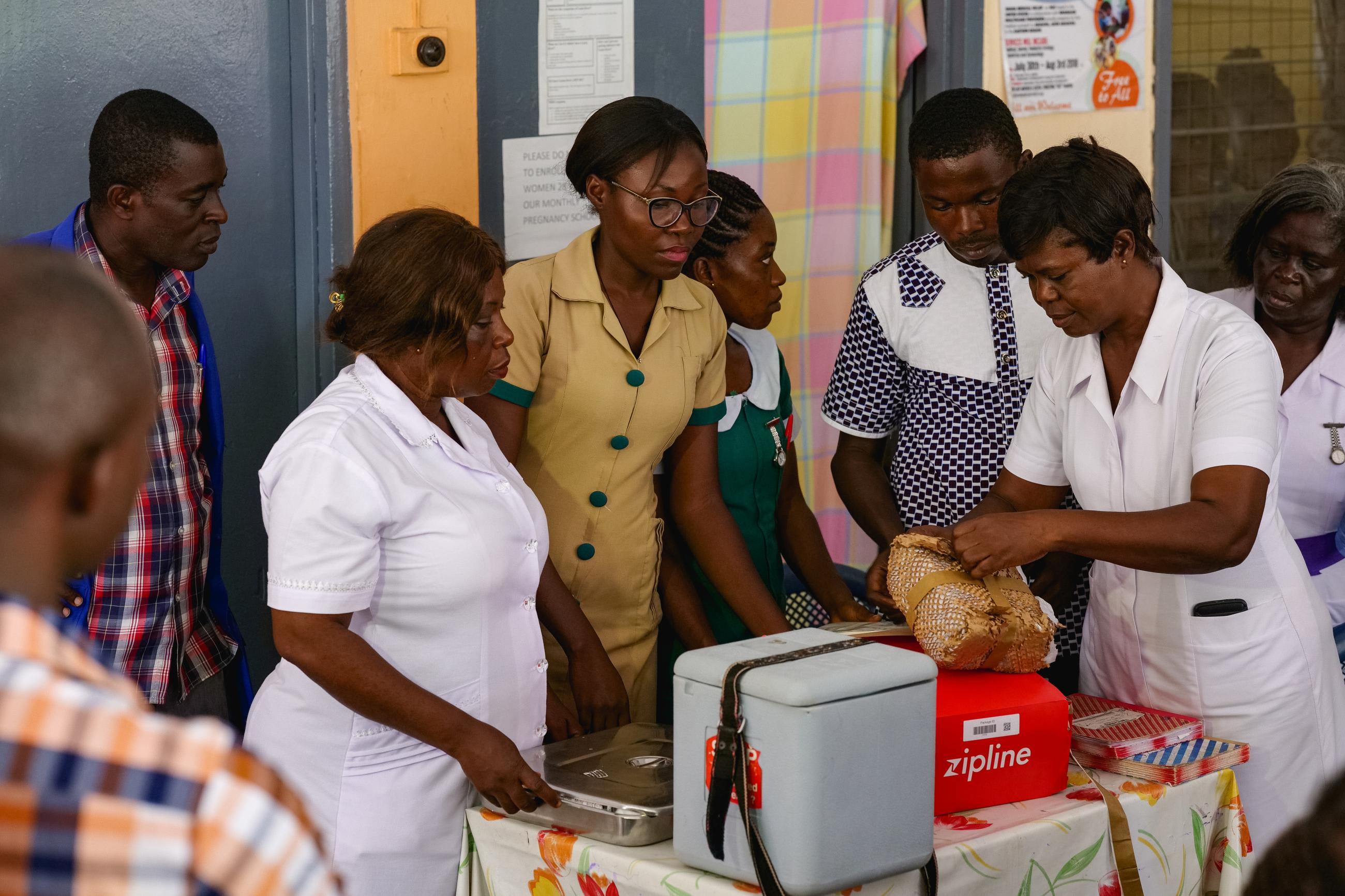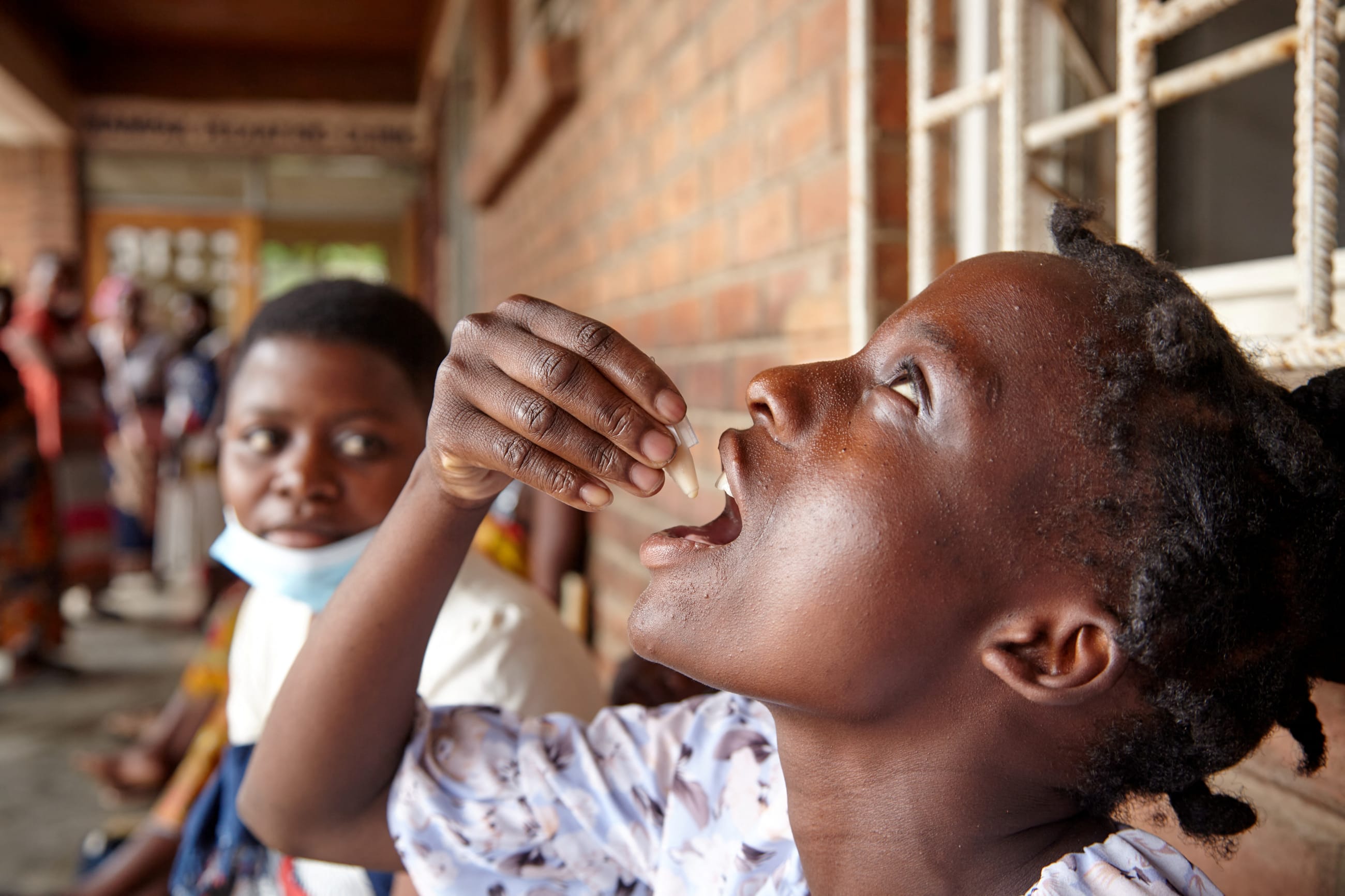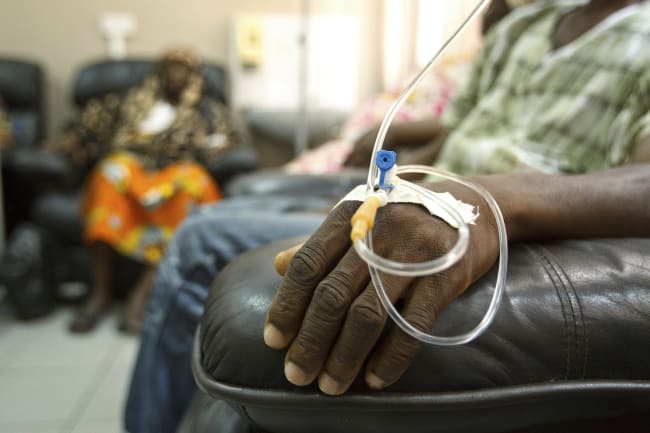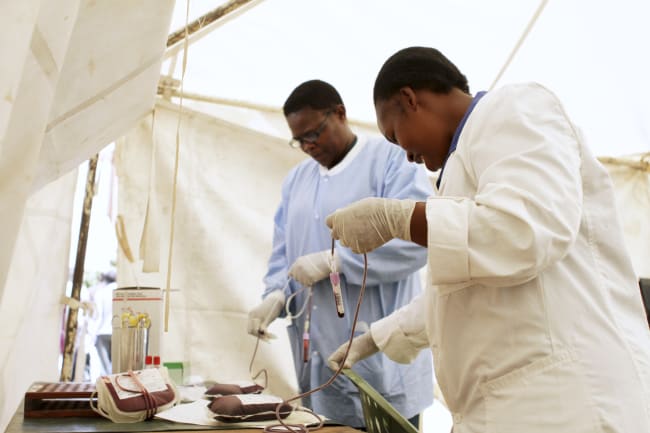Africa's recent mpox outbreak demonstrates once again that Africa needs regional production of medical countermeasures such as medicines, vaccines, and diagnostics to be able to swiftly respond to local health crises.
The European Union (EU) has invested millions of euros in regional production of medicines in Africa since 2021, aiming to increase the independence and capacity of the continent in combating diseases. However, a recent case study of German company BioNTech's Rwanda-based facility warns that the EU's investments could mainly benefit pharmaceutical companies from high-income countries, rather than Africa's industry.
Although the Rwanda facility could expand access to vaccines in the short term, it remains unclear whether local manufacturers will have the power to make decisions around vaccine production and access in the long term. If high-income countries want to make effective investments and avoid repeating failures of the past, they need to support local ownership of regional production.
Increasing Self-Reliance
Africa currently imports more than 99% of the vaccines and 95% of the medicines it uses and consumes nearly 25% of globally produced vaccines. In response to the disparity demonstrated during the pandemic and an urgent call from African leaders to boost regional production in Africa, both public and private institutions have undertaken initiatives to help increase the continent's self-reliance.
In 2021, the EU together with some of its member states, the European Investment Bank (EIB), and other partners set up a Team Europe Initiative on Manufacturing and Access to Vaccines, Medicines and Health Technologies to support the development of regional production in Africa with expertise and more than 1 billion euros ($1 billion). Announcing this support, European Commission President Ursula von der Leyen said that the aim is "to help Africa develop its own pharmaceutical, biotech and medtech industries.' The support should also help African countries coordinate their needs and create jobs.
Africa currently imports more than 99% of the vaccines and 95% of the medicines it uses and consumes nearly 25% of globally produced vaccines
Three years after the EU started investing in regional production, civil society organizations are questioning whether EU support will really contribute to Africa's needs-driven and job-creating pharmaceutical industry. The EU invested in an enabling environment in Rwanda for pharmaceutical companies to do business, including a local regulatory system. BioNTech shipped their modular factories from Germany to Rwanda to produce vaccines. The company has not disclosed any plans to ensure that the region can make products for and by itself, however.
BioNTech will manufacture mRNA vaccines in Rwanda, but the company's headquarters in Germany appear to still be making the decisions regarding research and development of new products and the pricing and allocation of doses. The extent to which local entities can influence these decisions is unclear. Without plans for technology transfer, BioNTech is not likely to enable local manufacturers to produce their vaccines. Open questions also remain over the extent the facility will be operated by a skilled workforce from the region, whether the revenues will stay in the region, and whether the region has first access to the vaccines produced.
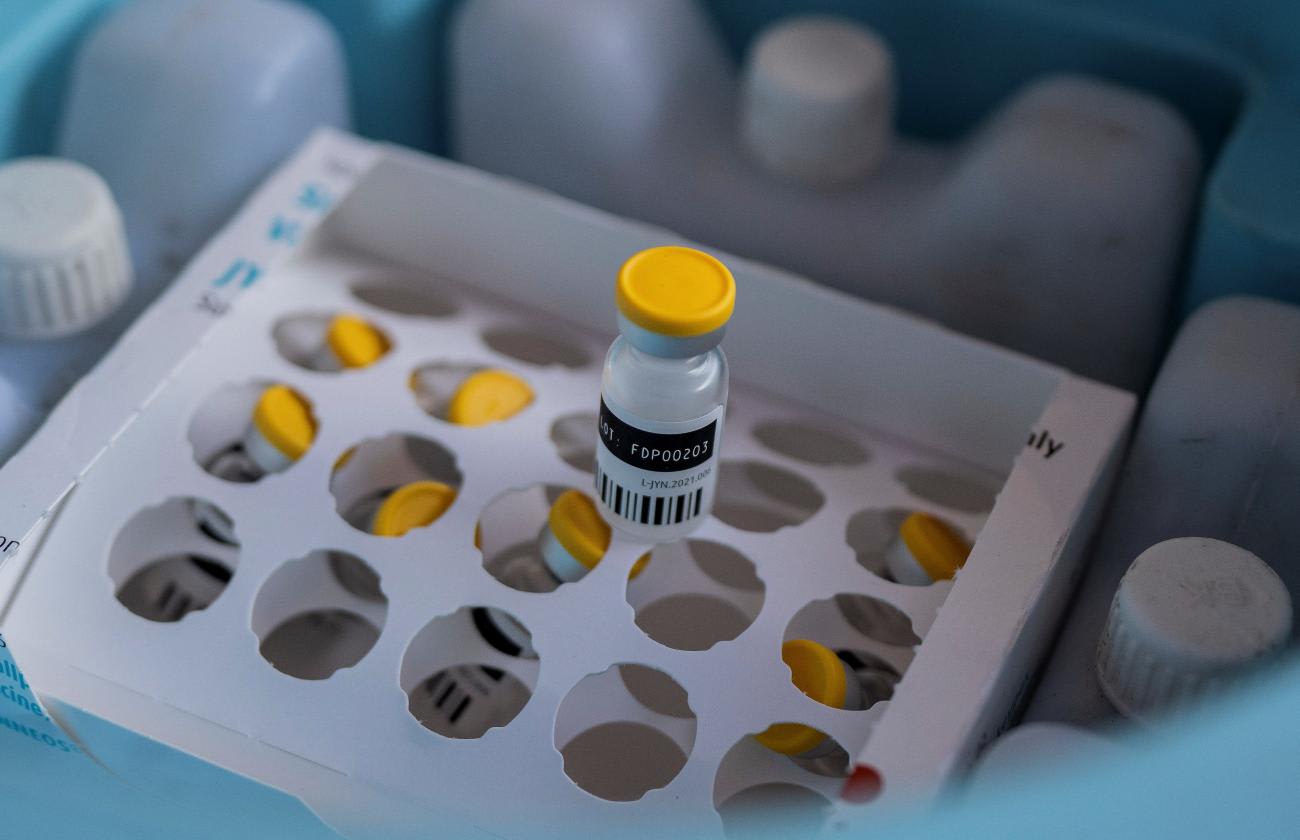
Similar concerns exist with the African Vaccine Manufacturing Accelerator, Gavi's financing mechanism to "support the sustainable growth of Africa's manufacturing base." The Accelerator aims to make up to $1 billion available over 10 years to create financial incentives for manufacturers in Africa, but it seems unlikely that its incentives will attract local manufacturers. The initiative awards payments to African-based manufacturers that obtain prequalification from the World Health Organization for their product, and to winners of a competitive UNICEF tender for delivering vaccines. However, only well-established manufacturers have the capital to succeed in reaching these incentives. Any new local producer would need to attract significant upfront funding to develop a product and be competitive on the market, and it is precisely this funding that is lacking.
Dependence on High-Income Countries
International attention on the regional production of medical products in Africa grew during the COVID-19 pandemic when it became painfully clear how dependent the continent is on high-income countries for access to medicines and vaccines. While high-income countries were vaccinating their population multiple times, countries in Africa were experiencing dire vaccine shortages. This resulted in approximately 14.9 million avoidable deaths and significant economic damage. The same pattern emerges with the current outbreak of mpox, with countries in Africa having to wait for vaccine donations from rich countries.
True regional production means production not only in the region, but also for and by the region
COVID-19—and now mpox—exposed the system that underpins limited global access to medical products. When a pharmaceutical company develops a new medicine, it gains a monopoly. The company is then free to determine the price and allocation of the product. In practice, this means that the power over access to medical countermeasures is in the hands of a few large companies from high-income countries. To maximize profit, companies keep most production in their own hands and sell their products to the richest countries.
With diseases that predominantly occur in low-income countries, another failure of the current profit-driven system emerges. Companies from high-income countries have little incentive to invest in research, development, and production of medical countermeasures against these diseases because the profit margins—if any—will be limited in low-income markets. As a result, people in Africa remain deprived of medical protection and treatment.
Creating Local Ownership
Regional production in Africa aims to solve the problem that the power in development, production, and distribution of medical products currently lies mainly with companies from high-income countries. This problem therefore will not be resolved by placing regional production in Africa in the hands of those companies.
True regional production means production not only in the region, but also for and by the region. A sustainable pharmaceutical industry in Africa that is needs driven and independent from priorities and profit motives in high-income countries requires regional production by local and regional manufacturers. If public funders such as the EU and Gavi really want to contribute to regional production, they should focus on creating local ownership.
The EU and Gavi can support local manufacturers by investing in early-stage vaccine development and innovation as well as in education to establish a local skilled workforce. Moreover, they should attach conditions to their funding of regional production initiatives to guarantee local ownership. In this way, they can enforce that companies participating in these initiatives share their intellectual property and transfer the technologies and know-how needed for production to local manufacturers. Academic institutions in host countries could also establish specialized programs, helping foster technical expertise and pave the way for technology transfer to happen at a later stage.
Recent global health crises have shown that a few companies from high-income countries should not have control over the protection and enhancement of global public health. Africa needs and calls for regional production that is truly regional.
